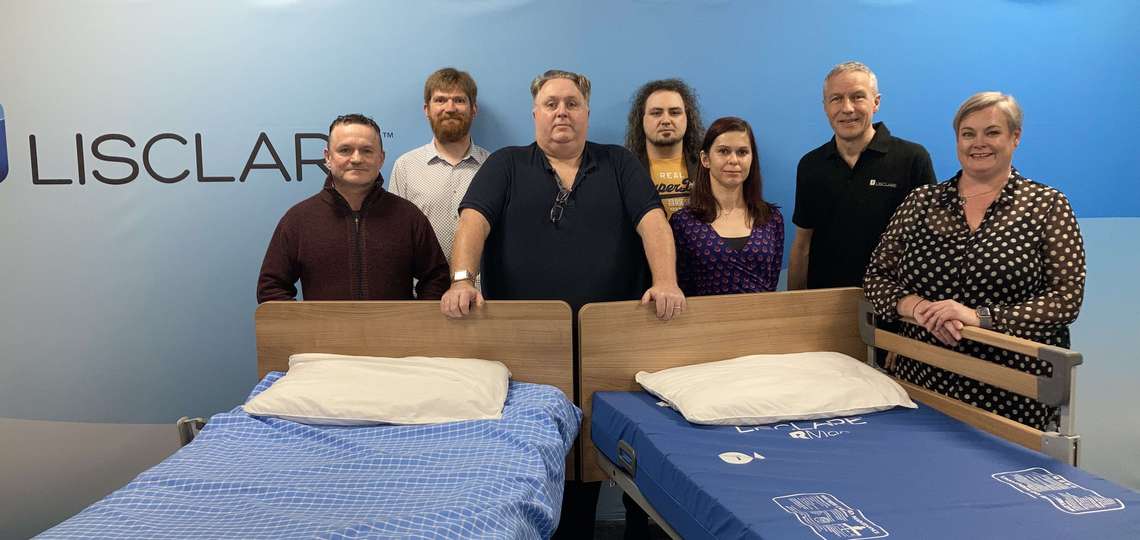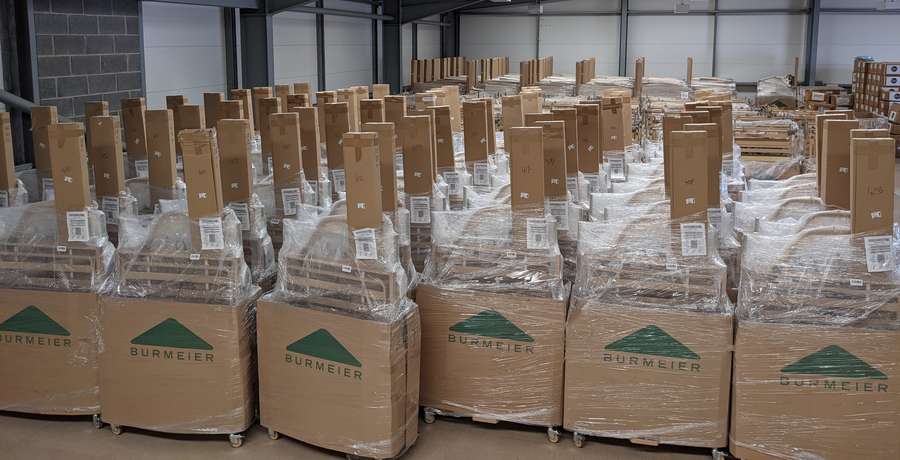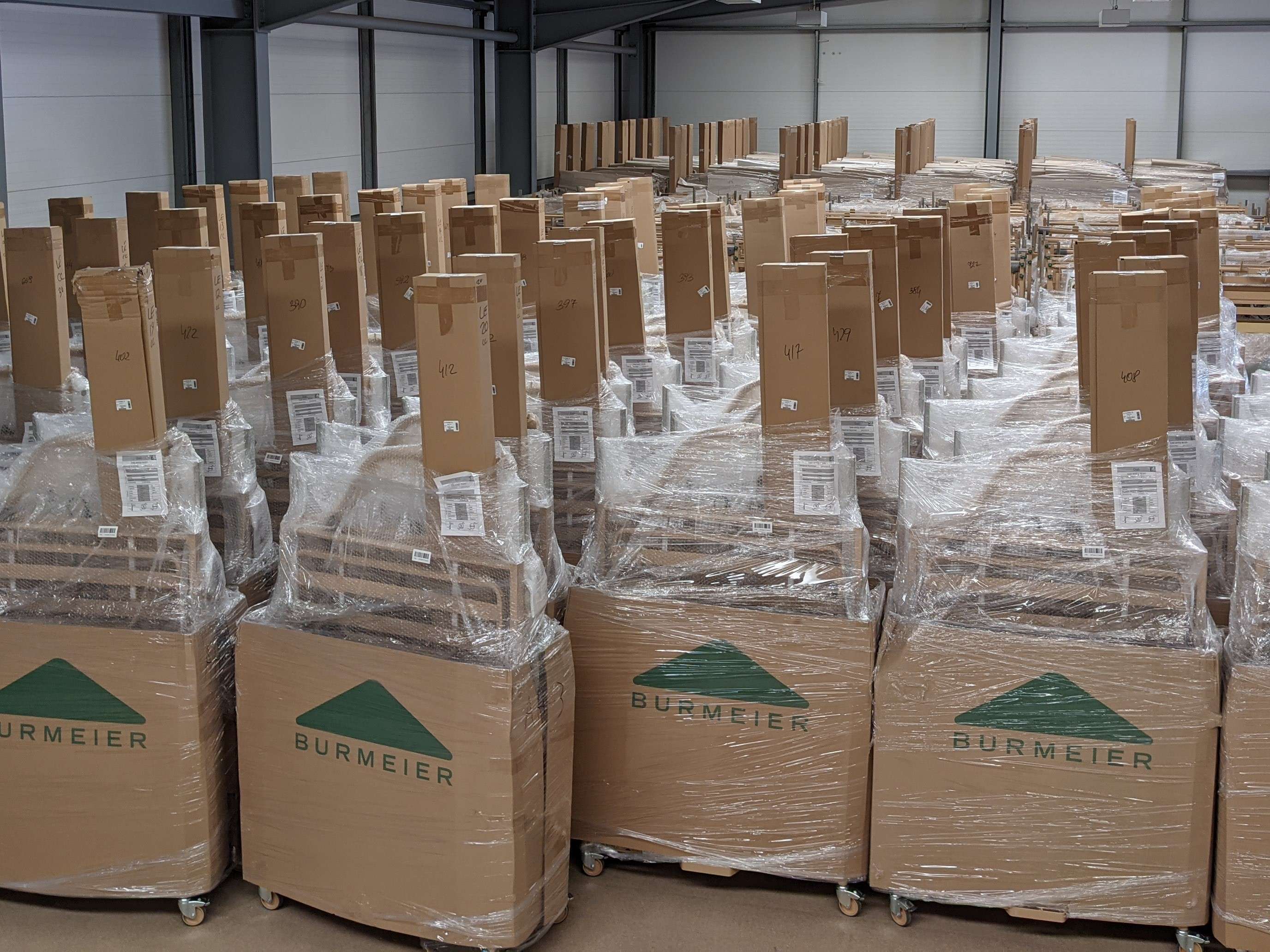
With passion and vision for better support for those in need of care
Our partner Lisclare provides high quality beds and homecare equipment for people in the UK and Ireland.
Lisclare stands for excellent provision with home care equipment and nursing supplies in the United Kingdom and Ireland. The company has its headquarters in Belfast, Northern Ireland, and another location in Widnes in North West England. Lisclare has been working closely with Stiegelmeyer and Burmeier for two decades. Therefore, it is a special pleasure for us to introduce this important partner. The Lisclare team answered our questions by e-mail.
How did the founding of Lisclare and the relationship with the Stiegelmeyer-Group come about?
Lisclare was founded in 1997 by Robbie Wright. While caring for his elderly mother, Robbie realised that the choice of nursing equipment designed specifically for caring for people at home was very poor. Since then, Lisclare have been selling nursing equipment and supplies into the community, nursing homes and acute hospitals in the UK and Ireland for nearly 25 years.
In 2002, Robbie and Lisclare’s Sales Director, Keith McMurray, visited the Burmeier booth at REHACARE. Keith was immediately impressed with the quality and innovative design of Burmeier’s Teutonia homecare nursing bed and saw the potential for the bed in the UK market. The Teutonia later evolved into the Dali range of beds. Robbie made the brave decision to order a container of beds straight away, becoming one of Stiegelmeyer’s first export customers. This successful partnership has lasted for nearly 20 years.
How is care for the elderly organised in the UK and Ireland?
The UK operates a National Health Service (the NHS) to provide healthcare, free of charge to all citizens. Elderly care falls outside of the scope of the NHS and is therefore provided by the local government authority. The elderly must pay for their own care if they can afford to, otherwise costs are met by the local authority. Relatives can make additional contributions to improve the basic standard of care and equipment provided by the local authority.
In the Republic of Ireland, basic services such as help getting in and out of bed and help with personal care are paid for through the Home Support Service. Additional services must be paid for by the patient. Grants are available to purchase homecare equipment for those who cannot afford it. Residential nursing care must also be paid for by the patient unless they have insufficient resources to cover the cost.
Which type of care is preferred in the UK and Ireland – homecare services, family care or moving into a nursing home?
In the UK, the elderly person’s individual requirements are assessed by an occupational therapist (OT), The OT will put together a package of care which can include regular visits from a care worker and providing specialist nursing equipment. The OT will also consider the ability of family members to take care of their relative when assessing the care package. The OT’s objective is to enable the patient to be cared for at home for as long as possible. Residential nursing care is the last resort. In Ireland, the preference is also to care of the elderly person at home for as long as possible, however the lower level of support available in Ireland for home care means that this may not always be affordable for many people.
Are there any new trends and developments in geriatric care at the moment?
The combined effects Brexit and the impact of Covid 19 has left the care sector in the UK chronically understaffed. We have seen a significant increase in demand for home care equipment as community care services work to free up hospital bed spaces for those need care sue to the pandemic. It is more important than ever to find ways to care of people in their own homes and reduce the burden on hospital and nursing home staff.



